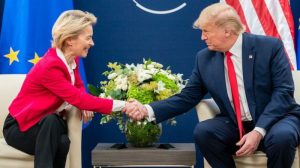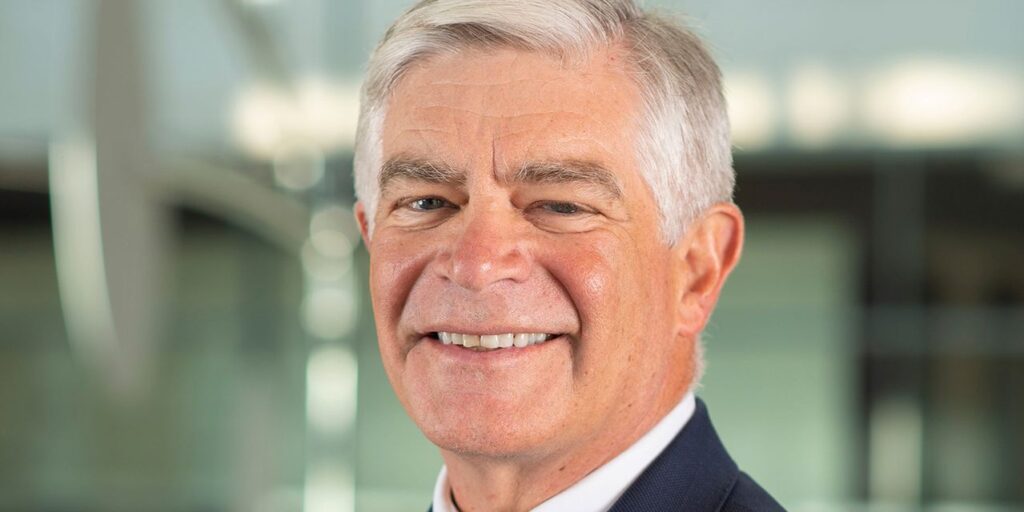Skipping a rate hike in June will put an end to the “frenetic” pace of interest-rate hikes seen over the past 14 months, Philadelphia Fed President Patrick Harker said Wednesday in an interview with MarketWatch.
“Think about where we used to be. We would do an increase at every other meeting. I think we need to get back to that,” Harker said.
“I think we’re close to where we need to be, [to] sit and hold for awhile. I don’t know if we’re there yet, that’s why we skip this one and see how it goes,” Harker added. “And if we need to raise, we raise at the next meeting.”
The Fed raised rates at an rapid pace over the past 14 months, pushing its benchmark rate to a range of 5%-5.25% from near zero in March 2022.
The Philadelphia Fed president, who is a voting member of the Fed’s interest-rate committee this year, said rate hikes of 50 and 75 basis points, as happened last year, were the outliers.
“Going up by 50 basis points, 75 basis points, that’s not normal,” he said, “So I think we get back to where we used to be, which was making a change every other meeting.”
“We needed the frenetic pace, don’t get me wrong, to get where we are today. But we don’t need to keep up a frenetic pace. We can start to let this settle in,” Harker said. “I don’t think there is a huge risk of skipping every other meeting.”
Read: Harker wants to ‘skip’ a rate hike in June
Harker said officials advocating for more rate hikes want to slow the economy dramatically,
“In my opinion, to be in the camp that says we need to keep going, going, going means we need to crush demand. We do have to get demand under control — that’s the goal. But we don’t have to crush it,” he said.
Some of the causes of inflation are on the supply side — like a lack of workers — and this is happening at a pace that won’t be affected by interest-rate policy, he said.
Harker said the the Fed may have to raise rates further.
“We may have to do more…and I am open to that, but let’s give it some time,” Harker said.
The Philadelphia Fed president said that there are other issues that argue for pausing. For instance, even though the debt-ceiling standoff seems to have been bridged, there is uncertainty about market liquidity after the U.S. Treasury quickly moves to borrow money to refill its coffers.
“Treasury is going to be issuing a lot. How does that affect reserve levels?” Harker asked.
In addition, credit is potentially getting tighter.
“There is going to be some [tightening], how much we don’t know,” Harker said.
“In that circumstance, I just don’t see why we would climb up this hill very quickly. At some point, we’re getting in the fog at the top of the hill, let’s start to slow it down a bit,” he said.
Read: Debt ceiling worry. Who will buy all those T-bills?
So far, credit tightening has not been significant in the Philadelphia district, Harker said,
The yield on the 10-year Treasury note
TMUBMUSD10Y,
fell in the wake of Harker’s initial comments. In a separate speech, Fed Gov. Philip Jefferson also spoke favorably about a pause.
In the wake of the comments, fed-funds futures traders pulled back on bets for a June rate hike.
President Joe Biden has nominated Jefferson to be the new Fed vice chairman, replacing Lael Brainard, who joined the White House economic team.
Read the full article here











